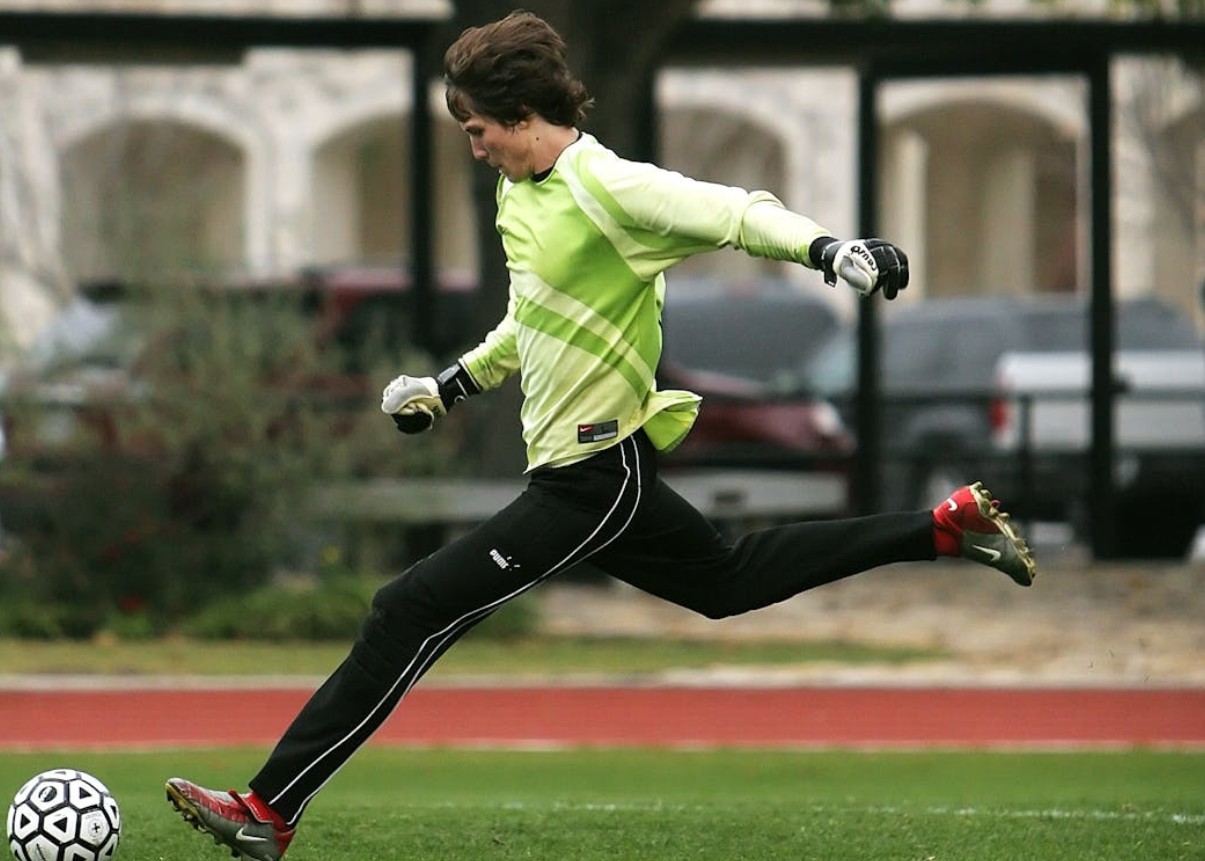A Study on the Role of Home Advantage in Football Betting Trends
Home advantage has long been a critical factor in

Home advantage has long been a critical factor in sports, and football is no exception. As fans gather to support their teams, the influence of a home crowd can often tip the scales in favour of the host side. Research indicates that home advantage significantly impacts betting trends, as bettors often lean towards teams playing on their home turf due to perceived strengths.
The recent study by the UK betting site FruityKing.co.uk on home advantage in football provides valuable insights for fans and bettors. With the football landscape evolving, understanding how home advantage affects match outcomes can help make informed decisions when placing bets. Factors such as crowd support, familiar playing conditions, and travel fatigue for the visiting team all contribute to the dynamics of home advantage.
In a time when betting markets are becoming more refined, recognising the nuances of home advantage can be key to successful wagering. By examining statistical trends and historical outcomes, individuals can confidently navigate the complexities of football betting.
Understanding Home Advantage in Football
Home advantage plays a significant role in football, impacting team performance and betting trends. Key factors include psychological influences, the impact of crowd support, and potential referee biases.
Psychological Factors and Territoriality
Players often feel more comfortable in familiar surroundings, which can enhance their performance. The sense of territoriality arises as home teams establish dominance on their pitch, making them more confident. This confidence can lead to improved focus and reduced anxiety.
Research suggests that when players compete at home, they may be less likely to receive yellow cards than in away matches, as they do not feel the same pressure. This psychological edge can contribute to achieving better results and a higher win ratio for home teams.
Impact of Crowd Support and Social Pressure
Crowd support is a crucial element of home advantage. A passionate home crowd can energise players and instil a sense of pride. A positive atmosphere may boost morale and encourage teams to perform at their best.
Conversely, away teams might experience social pressure that can hinder their performance. The fear of disappointing travelling fans can create anxiety. Therefore, the presence of supportive fans significantly boosts a home team's performance while adding stress to their opponents.
Referee Bias and Home-Biased Decisions
Referee bias is another aspect that influences home advantage. Studies indicate that referees may unconsciously favour the home team, leading to decisions that can impact the game's outcome. This may manifest in a higher likelihood of home teams receiving favourable free-kick calls or fewer yellow cards.
Such biases can affect betting markets, as bettors may not fully account for the impact of referee decisions. Understanding these factors can help bettors make more informed choices when analysing match outcomes based on home advantage.
The Influence of External Factors on Betting Trends
External factors significantly shape football betting trends. Elements like the COVID-19 pandemic, travel fatigue, and seasonal variations affect performance and betting decisions.
Effects of the COVID-19 Pandemic on Home Advantage
The COVID-19 pandemic transformed football games into "ghost matches," where empty stadiums eliminated the usual home crowd advantage. Without the noise and energy of fans, home teams often performed differently. Studies showed that teams playing without spectators lost their edge. Bettors became cautious, adjusting their strategies based on these unusual conditions.
In 2020, more than 40,000 professional matches were analysed, highlighting how the absence of spectators impacted outcomes. The data revealed that home teams experienced a decline in performance, which shifted betting dynamics significantly. This change forced bookmakers to re-evaluate odds, making them essential to follow during the pandemic.
Travel Fatigue and Altitude Considerations
Travel fatigue also plays a critical role in football. Fatigue can affect performance when teams travel long distances, especially for away matches. For instance, teams flying from lower to higher altitudes face additional challenges due to decreased oxygen levels.
These factors can heavily influence match outcomes. Bettors need to consider the implications of travel and altitude when placing bets. Understanding the specific context of each game, including travel schedules, helps bettors make informed decisions.
Seasonal Variation and Environmental Conditions
Seasonal changes and weather conditions also affect football performance. Home advantage may fluctuate throughout the season. For example, teams used to colder weather might struggle in warmer conditions during summer matches.
Rain and snow can influence pitch conditions, leading to different playing styles. Teams may adapt better to their home environment, which could impact betting odds. Bettors should pay close attention to forecasted weather when examining potential outcomes and adjust their strategies accordingly for greater insight.
Examining Betting Markets and Strategies
Understanding how betting markets operate is essential for making informed decisions. This section examines the efficient market hypothesis, the role of prediction markets in setting odds, and how to spot profitable betting opportunities.
Efficient Market Hypothesis in Sports Betting
The efficient market hypothesis (EMH) suggests that all available information is reflected in betting odds. If the market is truly efficient, consistently achieving returns better than the average should be impossible. This means bettors rely on data collection and analysis to identify market inefficiencies.
In practice, factors can delay how quickly odds adjust, particularly during unexpected events like player injuries or changes in team performance. Bettors who stay informed can exploit these situations.
Moreover, studies show that betting markets sometimes overestimate home advantage in League One and League Two leagues. Recognising these biases can improve betting strategies.
Prediction Markets and Odds Setting
Prediction markets are platforms where participants bet on the outcome of specific events. They provide insight into how the public perceives the likelihood of various outcomes. Odds are set based on the collective beliefs of these bettors, offering a unique perspective compared to traditional bookmaking.
In many cases, odds reflect public sentiment more than actual probabilities. This can create opportunities. For example, if a team has a strong home record, but the odds do not adjust accordingly, it may represent a profitable betting angle.
Using prediction markets allows bettors to gauge sentiment and align their strategies with market forecasts, which can give them a competitive edge in sports betting.
Identifying Profitable Betting Opportunities
One key strategy for finding profitable betting opportunities is to analyse historical performance data, including home advantage. Bettors should look at teams that consistently perform well at home and assess how the betting odds align with those performances.
Additionally, tracking market movements can reveal inefficiencies. If odds suddenly shift in a direction not warranted by recent news, this could indicate an opportunity to place a wager before the odds adjust again.
Bettors can also employ various strategies, such as value betting, targeting bets with higher chances of winning than the odds suggest. Bettors can create a more insightful betting strategy by combining historical data analysis with current market trends.
Home Advantage Metrics in Major Football Leagues
Home advantage plays a crucial role in match outcomes in major football leagues. It influences aspects such as goals scored, points gained, and team performance. Understanding these metrics can provide valuable insights for bettors and analysts alike.
Analysing Bundesliga and English Premier League Data
The Bundesliga showcases a strong home advantage, with home teams winning approximately 60% of matches. This trend can be attributed to passionate fan support and a high scoring rate. Teams that win at home often score more goals than their away counterparts.
The home advantage in the English Premier League is notable but slightly less pronounced, with home teams winning about 55% of matches. The competitive nature of the league influences these outcomes, as team form varies significantly. Home teams tend to perform better due to familiarity with the pitch and local support.
International Competitions and Home Advantage
International competitions like the UEFA Champions League reveal different dynamics for home advantage. Here, the influence of crowd support remains significant. However, travel fatigue and neutral venues can alter the expected advantages.
For example, teams often experience a drop in performance when playing away from home. In contrast, well-acquainted teams in their domestic leagues, such as those from Germany or England, generally perform better due to the established home advantage metrics. These factors make assessing international competitions unique.
Comparative Analysis Across Various Leagues
Comparing leagues such as Serie A in Italy, La Liga in Spain, and Eredivisie in the Netherlands illustrates diverse home advantages. In Serie A, home teams generally win 57% of matches, benefiting from tactical familiarity. Spain’s La Liga boasts a 54% home win rate, influenced by strong club cultures and local support.
In contrast, lesser leagues, such as those in Greece, show a higher variability in results. This inconsistency can affect betting trends, as home advantage may not play a significant role. Such comparisons highlight how regional elements shape home advantage metrics across leagues, impacting match outcomes and team points.







